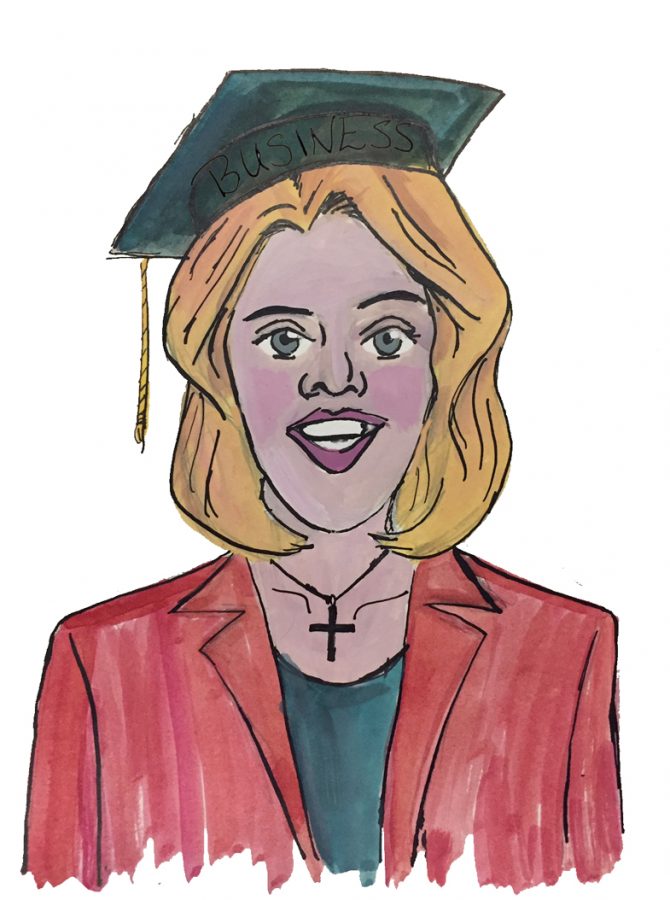The United States is in major need of an educational revamp.
More than a few presidential administrations have come and gone without making significant or impactful changes in education reform. And if last week’s Senate hearing is at all indicative, it doesn’t seem that the Trump administration will be making positive, or wise, changes either.
Betsy DeVos, Trump’s Cabinet pick for Secretary of Education and the future of education in America for the next four years, has dedicated much of her time and money working to implement educational change by promoting school choice in our country. But following her hearing — in which she refused to answer Sen. Tim Kaine’s questions on standards of accountability and proposed that schools should be allowed to have guns in case of grizzly bears — it is clear that she is blatantly unqualified for the position.
DeVos has never had a degree in education and has never worked in or attended public schools. Former secretaries haven’t always had degrees with ties to education, but many of them have spent time teaching or working as administrators or in local and state education departments. Arne Duncan, Secretary of Education under Barack Obama, was the superintendent of Chicago Public Schools before occupying the position, and Margaret Stallings, who held the position under George W. Bush’s second term, previously worked as a director for the Texas Association of School Boards.
Since DeVos has neither education experience nor experience in political office, her supposed qualifications for the position must come from the policy work she has done for educational advocacy groups. But that work raises questions about her ideological commitments and qualifications to lead the nation’s education department.
DeVos is chairperson of the American Federation for Children, a non-profit organization that donates money and resources to programs that give parents more control over where their children go to school. DeVos and the organization are also well known for helping parochial and charter schools receive vouchers, which increase access to private schools for people of all classes. Vouchers can be a healthy way to maximize the return of educational taxes, but they use public money on private schools. Due to misappropriation, these vouchers are often used deceitfully to fund religious education with taxpayer money.
Although it is not a requirement that voucher-receiving schools be Christian, DeVos’ history of commitment to religious groups raises questions about her intentions. In the past fifteen years, DeVos and her husband’s tax returns show they have committed over $50 million to Christian organizations — $8.6 million of which was donated exclusively to private Christian schools. In addition to her monetary donations to Christian foundations, DeVos’ commitment to her faith and the ways it informs her policy work are not secrets to the public.
Considering the First Amendment of the Constitution calls for the separation of church and state, those who hold political office should be expected to recognize and facilitate this convention. Based upon her record, DeVos has given no indication that she is willing or capable of maintaining the separation of religion from education.
To further the issue, when asked if public schools should be required to adhere to the Americans with Disabilities Act and the Individuals with Disabilities Education Act — legislation that allows students with disabilities to have equal access to and quality of education services — DeVos said it should be “up to the states.”
State mandating of this issue may seem logical — local governments have a much closer connection with their constituents and thus are better able to represent their needs. But disability services are inconsistent, and the standards set forth by the ADA and all subsequent bills involving public disability accommodations are barely met, if at all, in certain states.
Only 19 states, including Pennsylvania, have been placed on the DOE list as “meeting requirements” set forth by these disabilities laws. State compliance with these requirements falls at 38 percent. If states are currently indifferent to meeting the standards set forth by the federal government, they cannot be trusted to effectively legislate their own requirements.
Mandated disability services in publicly funded institutions are not limited to K-12 education. Pitt’s Office of Disability Resources and Services uses federal funding to provide services for our students that ensure they have an equal opportunity at success on campus. If the standards for these services are left to the state, as DeVos proposed, and Pennsylvania — a state already facing a $500 million and growing budget deficit — were to reduce funding to these services, access to resources for students with disabilities could become restricted or even non-existent.
Public education in the United States is crumbling, and DeVos, it seems, is not going to change that with her closed-minded ideals. If teachers are required to hold both degrees and licences to be in a classroom, we should expect some form of education experience, administration or otherwise, from those placed in charge of its coordination. Leaving the DOE under the control of a woman who appears to be more interested in her conservative agenda than the promise of equal opportunity will do nothing to help our nation’s education system — the foundation from which all of society springs from.


